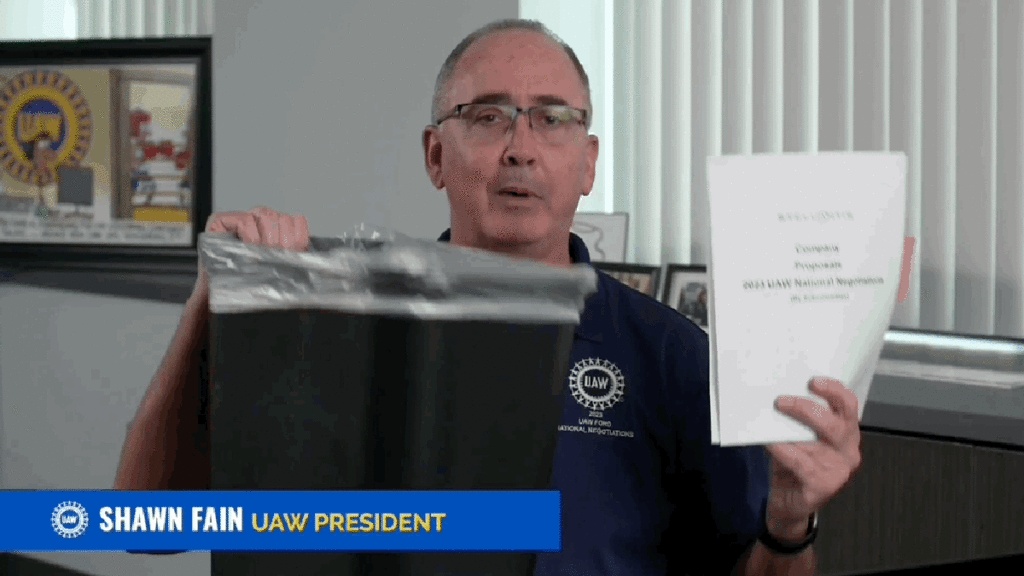The UAW's Contract Negotiations With The Big Three Are Starting To Get Good

The UAW’s labor contracts with Ford, GM, and Stellantis expire on September 14, which is a little over a month from now, and all parties involved are currently in the midst of renegotiating new deals, which involves submitting proposals back and forth. In a live event on Tuesday, UAW President Shawn Fain threw one of those proposals in the trash, from a multinational corporation called Stellantis.
“That’s where it belongs, in the trash,” Fain said, “because that’s what it is.”
Reuters reported some of the details about that proposal:
The July 27 company document seen by Reuters makes many proposals aimed at reducing absenteeism, which the automaker said cost it more than 16,000 vehicles of lost production, or $217 million in lost revenue.
Stellantis also seeks to cut pension, health-care and other costs, saying that amid government electric vehicle rules, it “is imperative we find ways to reduce the overall fixed cost structure of our business.”
Stellantis said the cumulative increase in employee health-care costs over the next four years is expected to be $613 million.
The UAW also said the company opposes an end to two-tier wages, a practice of newer hires getting paid much less than veteran workers.
Now, these are just proposals, and the union has its own lofty proposals as well, some of which may happen, some of which may not. Those proposals include numbers which, if you follow this story in the next several weeks, you’ll be hearing a lot of. The union wants a big raise for its members, for example, because the Big Three are raking in profits these days, while management will say something along the lines of, “Yeah, sure, we make money, but if we gave our employees more of that money we would be less competitive, yada yada yada.”
Both sides will attempt to make the other look unreasonable. Here today, for example, is an Automotive News story about how management at the Big Three just isn’t so sure about all of this:
The UAW’s list of contract demands — including more than 40 percent raises for members — would increase labor costs for the Detroit 3 by $45 billion to $80 billion a year and threaten their future viability, according to calculations by people familiar with the companies’ costs.
The demands, which also include pensions for all workers, more retiree health benefits and fewer hours for the same pay, would nearly triple labor rates to more than $150 an hour per employee at all three companies, the sources said.
Those numbers are so real that no one at the Big Three was willing to attach their name to them, and Auto News was happy to run with the story anyway, because that is the nature of this game.
There is some element of kayfabe in all of this: The UAW has to get its members riled up, because the UAW may want to go on strike next month, and having an engaged and pissed-off membership is a great way to get a better contract. For management, it’s more of a simple bean-counting exercise; everyone has a boss. I wish there was more kayfabe, even, but as of this writing management at the Big Three have yet to respond to Fain by lighting the UAW’s proposals on fire, or filming themselves tormenting a voodoo doll shaped like Walter Reuther. Fain’s gotten things off to a great start, however.







